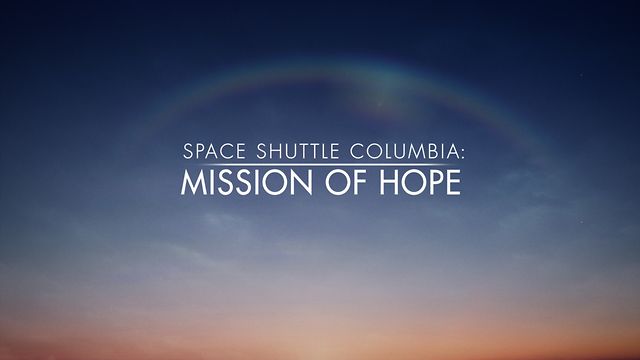
It has been a decade since the crew of Space Shuttle Columbia on mission STS-107 was lost just sixteen minutes from home. The nation, by-and-large, has moved on. A documentary, entitled Space Shuttle Columbia: Mission of Hope, has been produced to mark the occasion and to pay special honor to the first Israeli astronaut, Ilan Ramon.
Directed by Dan Cohen and produced in part by Tom Hanks, the film will air on Thursday, Jan. 31 to coincide with the anniversary of the tragedy.
The loss of Columbia seems to have been lessened in the general public, with many unable to differentiate between the loss of Columbia in 2003 and the loss of Challenger in 1986. This seems to be the way of things, as the years mount the public tends to forget the particulars; the reasons why the tragedies occurred in the first place are forgotten. Maybe this is how it should be, and maybe it’s a warning to the future.
As Sharon Brown, a forensic scientist with the Israeli Police, states in the early moments of Space Shuttle Columbia: Mission of Hope, “ … without knowing your past, you have no future; and to have a future, you have to know your past.”
Columbia serves as a lesson to those who reach for the stars; one simply cannot believe that everything will be fine or that “there’s nothing we can do about it anyway.” Already some are trying to convince the masses that spaceflight can be as simple and as easy as a commercial airline flight. While the cost of access to orbit can be brought down, the cost of overconfidence cannot.
Space Shuttle Columbia: Mission of Hope brought tears to my eyes. Be aware, I’m not like NASA Administrator Charlie Bolden, who has no problem showing some tears (as a former Marine Corps General, he’s no softie, and as a former soldier and law enforcement officer, neither am I). However, Columbia is what inspired me to pursue a career covering the space program. A great many of my colleagues were inspired by the Moon landings or some of the other incredibly positive events that our space program has provided human history.
A few of those who cover the beat that I do were inspired by the loss of Challenger or Columbia. We know how vital space flight is for a multitude of reasons. We also are all too familiar with how dangerous it is. While we write to explain the importance of space exploration to the masses, we also write to explain the inherent risks involved.
Throughout the course of Space Shuttle Columbia: Mission of Hope, two trajectories revolve around one another through tales of Ramon’s life as the son of a Nazi death camp survivor who would go on to become a fighter pilot and then an astronaut—only to lose his life on STS-107, Columbia’s final flight.
The lesson is a hard, but necessary one. For a variety of reasons, bad things happen. How we respond to them is what is important. Do we give up? Surrender to despair and never lift our eyes to the skies? Or do we refuse to yield or be broken? The message for me from the documentary was simple: never give up, never yield, never surrender. The film is an inspiration, and I highly recommend it to both space enthusiasts and novices alike.
Hail Columbia.
Missions » ISS »


